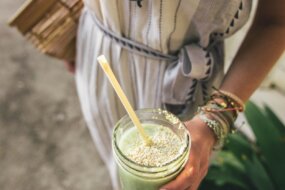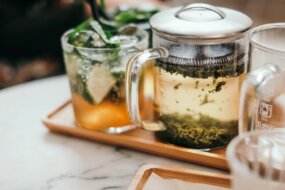
One of the reasons why many people, find sugar irresistible, is the sweetness and the boost of energy it gives. Sugar is one of the most common components, in edible products. It’s arguably the most available ingredient in most kitchens and homes.
Sugar is the go-to material for energy, especially for physically tasking jobs.
According to an article on Statista, the global consumption of sugar will amount to about 176-180 million metric tons, by 2024.
The nature of sugar can make it addictive and prone to abuse. However, studies show that sugar isn’t the poison that people think it is, if consumed the right way.
What is sugar?
An article on Healthdirect, defines sugar as a type of carbohydrate, which is a source of energy for the body.
The Sugar Association describes sugar, as a versatile and irreplaceable functional ingredient in food, which is used to provide sweetness, balance acidity and add bulk or prevent spoilage, among other properties.
Types of sugar
Sugar can be consumed in two major forms: as naturally occurring sugar or added sugar.
1. Naturally occurring sugars are found naturally in foods such as, fruits and milk.
2. Added sugars are sugars that include natural sugars such as, white sugar, brown sugar and honey. It also includes sweeteners that are chemically produced like, high fructose corn syrup, beverages and candy.
Classification of sugar
The major source of sugar is found in carbohydrates and is divided into three main types: Monosaccharides, Disaccharides and Polysaccharides.
Monosaccharide: is also known as simple sugar and is mostly broken down as glucose in the body
Disaccharide: is formed by a dehydration reaction between two glucose molecules. They include lactose, maltose and sucrose. The most common disaccharide is sucrose, which is found in table sugar.
Polysaccharide: is derived from units of monosaccharides. They are present in starch, glycogen, cellulose and chitin. Polysaccharides can be easily found in plants, including its roots and seeds.
Good sugar and Bad sugar
Avoiding sugar altogether, may not be a good idea. Because going sugar-free, can have consequences on your health. Rather, it’s more practical to find out the ones that are good for you and the ones that are not.
Good sugar
According to an article on Everyday Health, natural sugars tend to be low in calories, sodium and high in water content and many important vitamins and minerals. Hence, this makes it good for you.
Examples of foods with natural sugars are:
- Fruits: Banana – 1 average-sized banana contain about 105 calories.
Berries – 1 whole cup of strawberries contains about 45 calories.
- Dairy products: skim milk – 1 cup of skim milk contains about 86 calories.
Bad sugar
Bad sugars on the other hand, are usually added sugars. They cause a rapid increase in the blood sugar, because the body digests them more quickly. Added sugars can overtime cause health problems like obesity, heart disease and type 2 diabetes.
Some examples of foods with added sugar are: some ketchups, white bread and honey.
What can sugar deficiency cause in the body?
Sugar deficiency is directly linked to low blood sugar, which can have consequences on the health that could be quite severe. Here are some of the ways sugar deficiency can affect your health:
1. It can lead to the deficiency of vital minerals that your body needs. Magnesium, vanadium or chromium are examples of minerals present in certain foods. When you avoid such diets, you deprive your body of those nutrients as well.
2. Sugar deficiency may result in a change in chemical balance and dehydration, due to water loss caused by low carbohydrate storage in the body.
3. Severely low blood sugar can affect the endocrine and circulatory systems, by damaging nerves that transmit important information to the brain.
4. Sugar deficiency can lead to a condition called Gastroparesis. This causes food to spend too much time in the stomach, before entering the small intestine.
5. Low blood sugar could make one susceptible to heart disease.
What are the health benefits of sugar?
It can be an instant energy booster
When sugar is consumed, it is converted to glucose, which is the main source of energy for the body.
It improves your mood
Sucrose activates sweet taste receptors in the mouth, which leads to the release of a chemical in the brain, called Dopamine. Dopamine is responsible for pleasure, motivation and learning.
It can be an excellent source of nutrients
When you eat natural sugar, you not only get the immediate sweetness, but you also receive nourishment for your body. Sugar derived from dairy products, fruits and vegetables usually contain low sugar.This means that, it can be enjoyed without increasing your blood sugar.
It helps in reducing bodily symptoms
Low level of sugar is linked to symptoms of weakness and headaches in people. But dopamine can help with hormonal control in dealing with nausea, vomiting and anxiety.
It can be used as body scrub
Sugar contains Alpha Hydroxy acid (AHA), which is useful in removing dead skin cells and promotes a healthier and well-toned skin.
It can provide energy for later use
The energy provided by sugar can also be stored and used by the body later. This is important especially when there’s no immediate access to food.
Although you need sugar in small quantity, it’s still necessary for the proper functioning of the body. Instead of avoiding sugar, the right way to go about it is by getting the correct information, so you don’t make errors that could lead to serious health problems.
The best way to maintain good health is by practicing moderation. When you remove certain foods from your diet plan without proper medical guidance, it could be dangerous to your health, because you might miss out on other benefits your body can get from them.
So, next time when you have sugar cravings, you don’t have to feel guilty about it. A little sweetness is good for the body and soul!
For more clarification read – Sugar Uses | The Sugar Association
//www.everydayhealth.com/diet-and-nutrition/diet/which-sugars-are-good-you-which-ones-avoid/7






